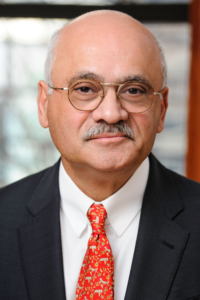
Basic Key Points of Digital Networking
Usp full form: Unique selling proposition, Unique Selling Point, or the corresponding abbreviation USP are established terms in marketing and sales psychology. They are used as synonyms and designate a unique sales promise by which a product or service clearly distinguishes itself from the offers of the competition. The principle of the Unique Selling Proposition can also be transposed to other fields, such as politics or art.
Why is a Unique Selling Point essential? A single sales promise is used to position, promote and sell products and services on the market. In times of market saturation and increasing interchangeability of offers, such a promise is essential to stand out from the competition.
How important are USPs in marketing?
The Unique Selling Proposition is credited to Rosser Reeves. The latter introduced the concept into marketing theory and practice and defined it in 1940 as a unique selling promise. According to Reeves, USPs must be created so that the product or service in question is distinguishable from competitors’ offerings in the market. They represent the decisive factor in the purchase decision and trigger the buying impulse, provided, of course, that they are adapted to the target concerned.
Development of theory and practice
In 1961, Reeves published his book “Reality in Advertising, “which is still a reference in the field today. In this book, he specifies that an advertisement must clearly state why the consumer should buy the product concerned rather than another. Reeves also highlighted that the advertised USPs must be met, i.e., the offer must have the benefits promised in the advertisement. Lasting success is only possible if these conditions are met.
Natural USPs: are derived from the product, its properties, or the manufacturing method.
Artificial USPs: are only attributed to the product on the occasion of advertising and are also referred to as Unique Advertising Proposition (UAP).
What is captcha: CAPTCHA is the acronym of an English term: Completely Automated Public Turing test to tell Computers and Humans Apart. it could be translated as “Completely Automated Turing test to differentiate between computers and humans.”
In practice, this is an internet security measure in the form of “question-and-answer” authentication. The goal is to determine whether the person performing an online action is a computer or a real Internet user. This helps prevent or at least limit robotic actions.
Where do CAPTCHAs come from?
The 90s and technological advances and digital-led to a great development of forums. On the forums, you found many Spams where messages were posted in very large numbers.
Either to harm users or to bring back to questionable sites
The researchers are then looking into a solution that would make it possible to distinguish a robot from a human to avoid the proliferation of these harmful messages.
In 1996, a first system was found, asking to copy characters. Only robots evolve as fast as advances in web protection and can quickly detect and retype characters. The concept will evolve after that to give the first CAPTCHAs as you knew them: texts more difficult to decipher based on different variations:
- A distortion of the letters,
- The use of different colours in the background and on the letters,
- A strong alternation of the case (uppercase and lowercase),
- Text reproducing handwriting.
This is how the first CAPTCHAs were born, the form of which remained that of a distorted text for several years.
Nap full form: A Network Access Point (NAP) is a major point where Internet Service Providers.
The transition from state-sponsored NSFNets to the latest Internet was successful with many network access points.
Network access point systems have made it possible for different companies to connect their networks. This type of competition has hampered the development of the Internet monopoly.
One of the Reputed Digital Marketing Company in India is:
Obiyan Infotech –
103 & 105, 2nd Floor, The Mall Rd, Kingsway Camp,
GTB Nagar, New Delhi, Delhi 110009
Phone: +91 7044444433



